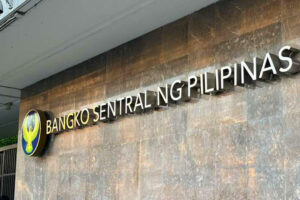
Consumer inflation expectations focused on food, transportation prices, BSP finds
FOOD and transport prices will be driving consumer inflation expectations, according to a Bangko Sentral ng Pilipinas (BSP) discussion paper.
“Empirical findings suggest that consumers’ inflation expectations are shaped by price changes in salient commodity groups such as food, beverages, and transport,” according to the paper, ‘Dissecting Consumer Attention: Insights on Consumers’ Inflation Expectations in the Philippines.’
It said that inflation expectations of households are crucial in understanding inflation dynamics. These also have implications on economic behavior and spending patterns.
“Salience of price changes over the past year appears to align closely with the size of actual expenditure shares, although housing, while a large expenditure, does not receive proportionate public attention,” it said.
“Among food items, consumers appear to pay closer attention to rice, sugar, fish, vegetables, and fruit,” it added.
The Philippines has been facing elevated inflation since 2022 amid supply chain disruptions and other external headwinds.
Since 2022, annual inflation has breached the BSP’s 2-4% target range. The central bank expects inflation to settle at 3.4% this year.
The discussion paper also found that low-income consumers are more focused on food and rice prices as against higher-income classes.
Meanwhile, consumer expectations were also found to be bad predictors of actual conditions.
“Compared to professional forecasters and firms, households’ mean inflation expectations register higher forecast errors. Consumers also offer more dispersed assessments of its future direction,” it said.
“While households tend to forecast with lower mean accuracy, higher moments of the distribution of their expectations can shed light on the anchoring of inflation and signal shifting expectations among segments of the population,” it added.
According to the latest consumer expectations survey of the BSP, more consumers are pessimistic amid expectations of rapid increase in the prices of goods and higher household expenses, lower incomes, and fewer available jobs.
“While households’ mean inflation expectations lagged rising inflation, the underlying distribution showed wider variability and negative skewness, suggesting a possible weakening of the inflation anchor and upward drift in expectations,” the BSP paper said.
“Households’ mean inflation point forecasts were also found to persist despite substantially increasing news coverage on the elevated inflation. However, disagreement appears to generally track inflation mentions in the news,” it added. — Luisa Maria Jacinta C. Jocson



